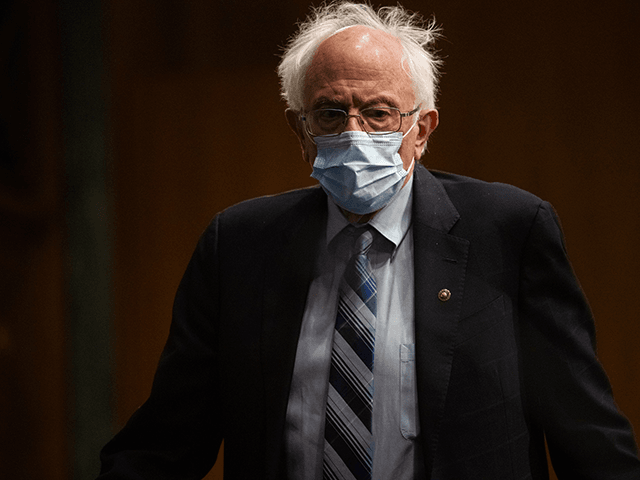The hopes of President Joe Biden and the congressional Democrats to raise the minimum wage to $15 per hour took a hit on Thursday.
In a marathon vote on expediting the process for devising an economic relief proposal for the novel coronavirus outbreak, Senate Republicans succeeded in passing an amendment that would prohibit raising the minimum wage to $15 during a “global pandemic.” The amendment, offered by Sen. Joni Ernst (R-IA), was easily adopted by the chamber in a voice vote.
“A $15 federal minimum wage would be devastating for our hardest-hit small businesses at a time they can least afford it,” Ernst said ahead of the vote.
Although the vote is officially non-binding, Ernst’s amendment comes as Sen. Bernie Sanders (I-VT), the chair of the Senate Budget Committee, has made a strong push to include an increase to the minimum wage in any coronavirus relief package. Sanders, in particular, has argued it is imperative to use the budget reconciliation process, a tactic that allows the Senate to pass legislation affecting spending and revenue with a simple majority of 51 votes, to push through a $15 minimum wage.
While Sanders has made such arguments both in public and private in recent weeks, the self-described Democratic socialist surprised some by supporting Ernst’s amendment on Thursday.
“It was never my intention to increase the minimum wage to $15 immediately and during the pandemic,” Sanders said during debate on the measure. “My legislation gradually increases the minimum wage to $15 an hour over a five-year period and that is what I believe we have got to do.”
Concerns over the economic impact of raising the minimum wage to $15 per hour have proliferated since Biden included the proposal in his $1.9-trillion-dollar coronavirus relief package last month. Some, such as Sen. Joe Manchin (D-WV), a must-win vote if Democrats attempt to raise the wage via reconciliation, have already signaled that $15 an hour would place too high a burden on businesses.
“I’m supportive of an increase that’s responsible and reasonable, and in my state that’s $11,” Manchin said earlier this week, arguing that a smaller increase to bring the wage in line with inflation was more politically viable.
A study conducted by the bipartisan Congressional Budget Office (CBO) in July 2019 found that raising the federal minimum wage from the current rate of $7.25 an hour to $15 an hour, even if done incrementally over five years, would likely result in more than 1.3 million jobs lost.
In coming to the 1.3 million estimate, the CBO determined there is “considerable uncertainty” about how employers would respond to the wage hike. The study, in particular, noted that because a large portion of minimum wage jobs are in the retail and service industries, employers could be expected to cut back on staff. Similarly, economists estimate employers, especially in the retail and service fields, are likely to pass on the cost of any increase in the minimum wage to consumers.
Overall, the CBO’s 1.3 million figure was only a median estimate, with the organization suggesting the real number of jobs lost could be anywhere between zero and 3.7 million.

COMMENTS
Please let us know if you're having issues with commenting.